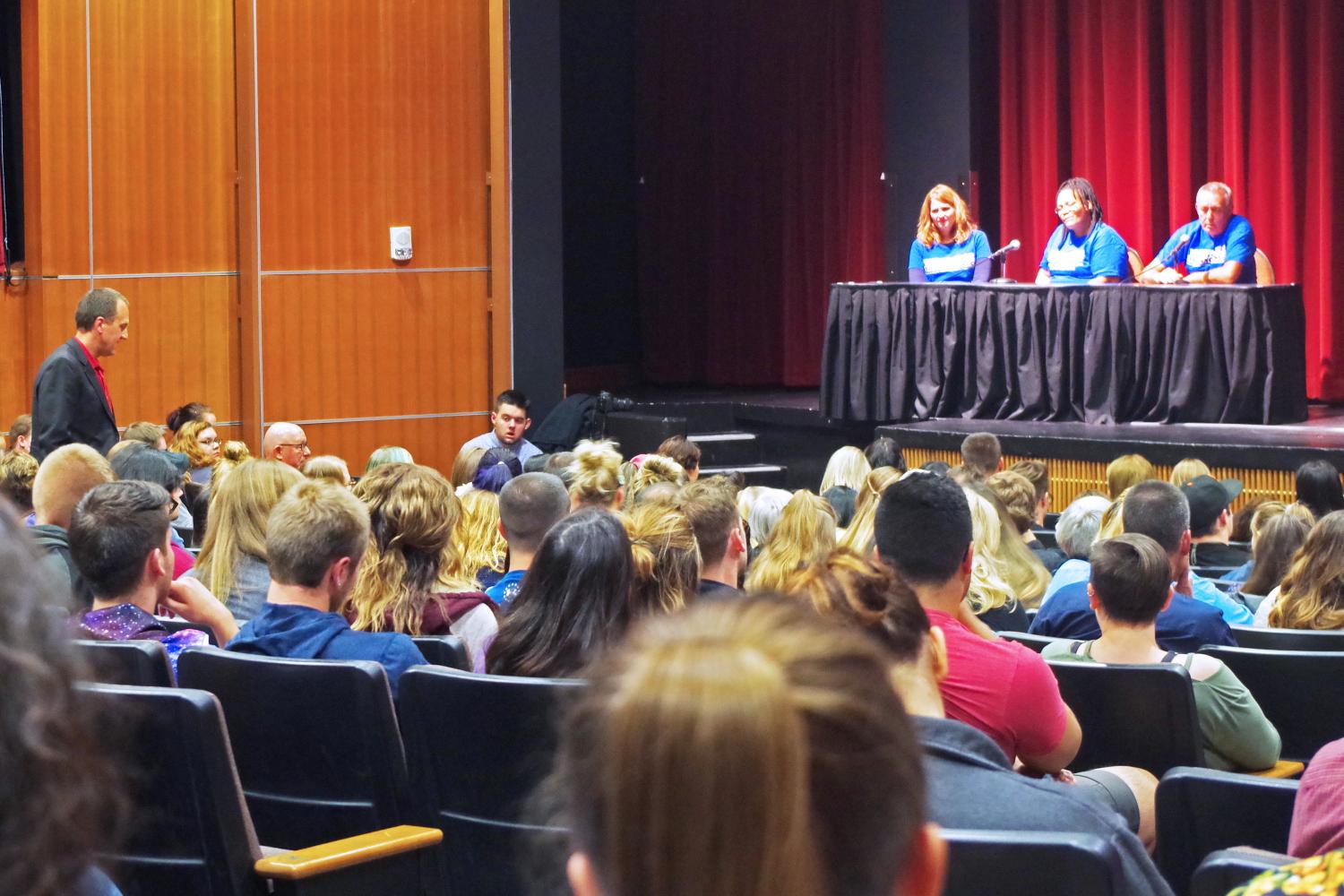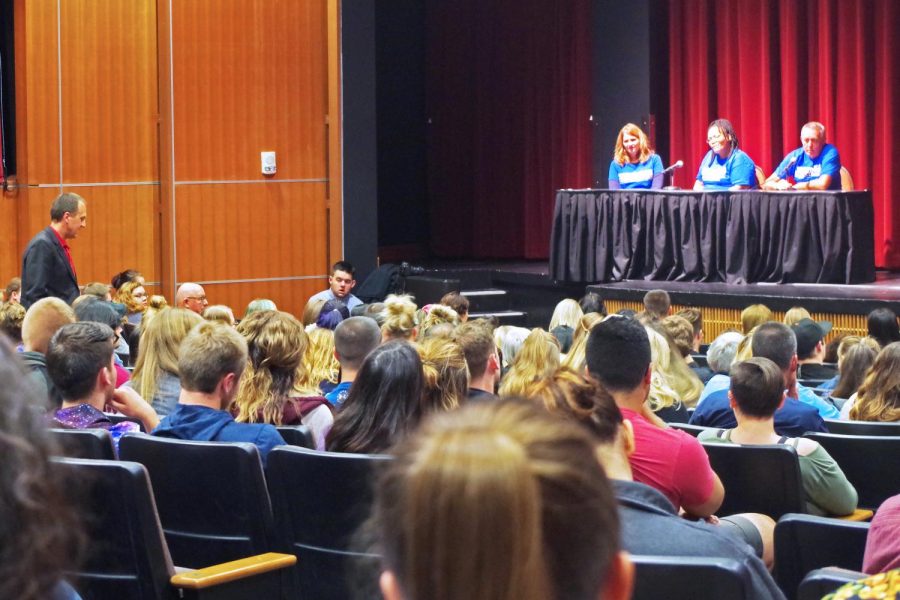Exonerees tell stories of life on death row
Anderson moderates conversation and questions between the audience and the two guest speakers, Butler-Smith and Padgett. James Stuck/TheObserver
October 12, 2017

The SURC Theatre was at capacity on the evening of Tuesday, Oct. 3. Security turned away about 70 students, but media and late arrivals lined the back wall. The guest speakers arrived prepared; this was not their first time sharing their stories.
Witness to Innocence (WTI) is a national organization with the goal of abolishing the death penalty across the country with the help and developed leadership of exonerated death row survivors, according to WTI’s homepage.
The Washington Coalition to Abolish the Death Penalty shares the same goal as the WTI, but that organization of volunteers is specific to the state; whereas, WTI is national.
Founded in 2003, WTI has become one of the most prominent anti-death penalty organizations in the United States, according to the WTI homepage. The organization has regular contact with roughly 4,000 supporters, said WTI Director of Communications Stephanie Anderson, who was also the discussion moderator for the evening.
Since 1973 there have been 159 exonerated death row inmates, Anderson said. Only one of those exonerees being from Washington. The death penalty is legal in 32 states, including Washington; however, the penalty is currently in moratorium, issued by governor Jay Inslee in 2014.
A study completed in the United States in 2016 also showed that inmates were three times more likely to be put to death if they were African American, said Anderson.
“The death penalty is a failed public policy,” Anderson said. Her exonerated colleagues agreed.
Randal Padgett, one of the death row survivors who spoke on Tuesday, was accused of murdering and raping his ex-wife. He was sentenced to death by electric chair. After waiting in prison two and a half years for a retrial, he was exonerated due to a botched blood test.
“Death row is a bad place,” Padgett said. “It plays on your mind if you’re innocent.”
The first female death row survivor ever, Sabrina Butler-Smith, was accused of killing her son in 1989 when she attempted to perform CPR on him. Her son was not breathing, so then 17-year-old Butler-Smith pleaded her apartment neighbors for help. A neighbor incorrectly told her how to perform CPR, resulting in the death of her son.
Law enforcement later took Butler-Smith from the hospital and into custody, naming her a suspect in the murder of her son. Screamed at by the investigators, she was pressured into admitting guilt and therefore charged with child abuse and murder, Butler-Smith said. She did not sleep the night of her son’s death and her arrest.
The day of her trial, Butler-Smith was appointed two court-ordered attorneys. One attorney appeared to trial drunk and the other did no background research on the case. Upon arrival to the penitentiary, she was stripped of her clothes, fingerprinted and her hair bug sprayed.
She would spend 23 hours a day for two years accompanied by rats and bugs in a six-by-nine foot cell.
On July 2, 1990, Butler-Smith was sentenced to death.
“I thought that was the day I was gonna die,” Butler-Smith said. “ [It was] one of the worst days of my life and I wouldn’t wish it on anyone.”
However, evidence showing her son had a heart condition forced a retrial. Butler-Smith was moved to a county jail, where she stayed another three years before the retrial. The trial proved her innocent, and on December 18, 1995, Butler-Smith became the first woman in the United States to be exonerated.
After release from prison, Butler-Smith had difficulty readjusting to life outside the walls of a cell. She received support from her family, but was not able to find a job until 2009, 14 years after her release. In 2009, Butler-Smith received compensation in a settlement for her time lost in prison. She felt it was not enough.
“You can’t give me back what you took,” said Butler-Smith, referring to the time she lost as an innocent person in jail.
Butler-Smith did not find her son’s grave until years after her release, and she is currently attempting to have it exhumed and moved. She has remarried and now has two more children. Her daughter has the same heart condition that contributed to her son’s death.



